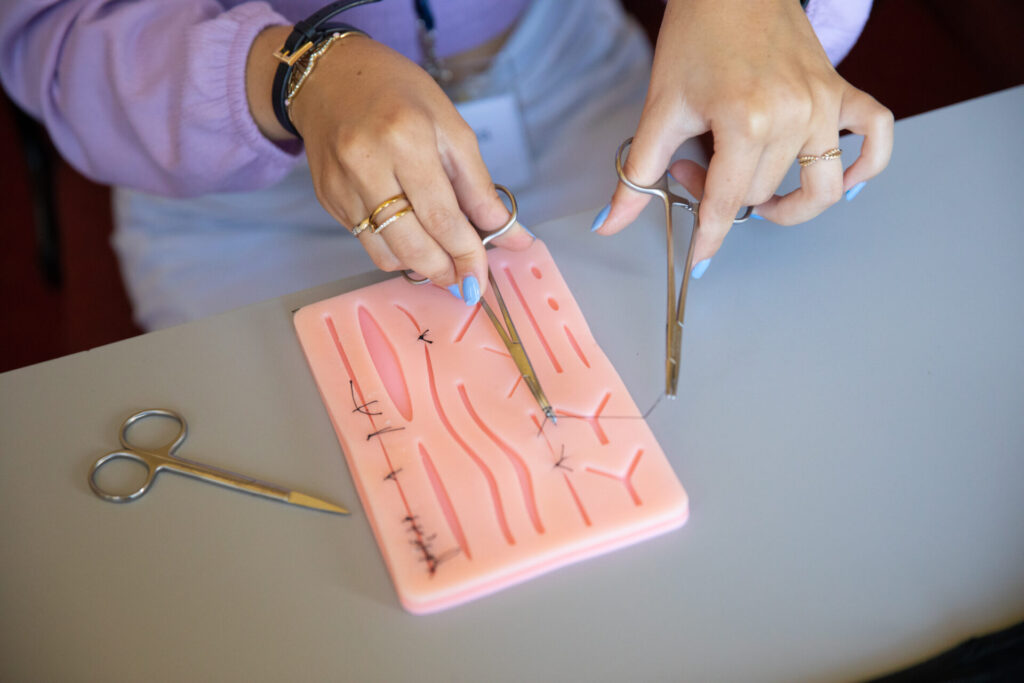Law is a competitive and intellectually demanding profession. For students thinking about a career as a lawyer or attorney, there’s simply no substitute for hands-on exposure to the legal world. Law work experience provides an inside look at the realities of legal practice and helps clarify whether the field truly matches your skills, interests, and ambitions.
This guide covers the importance of legal experience, explores practical options for gaining it, and offers actionable advice for those just starting their journey in law.
Why Is Legal Experience Needed?
The value of legal work experience extends far beyond simply bolstering your CV. For university applicants, aspiring solicitors, and future barristers, it serves several critical purposes:
- Real-World Insight: Experiencing law in practice gives a realistic view of daily routines, legal procedures, and the diverse tasks lawyers handle. It corrects any misconceptions shaped by pop culture or TV dramas.
- Skill Building: Legal environments demand strong research, communication, analytical, and organisational skills. Direct exposure helps you build and demonstrate these competencies, which are prized by law schools and employers.
- Informed Career Choices: Observing solicitors, barristers, or paralegals at work helps you identify which branch of legal practice suits you – commercial law, criminal law, family law, or the rapidly evolving field of international law.
- Networking: Work experience law placements forge connections with practising lawyers and legal support staff. These networks can lead to valuable references and advice for your future applications.
- Application Strength: Law schools and training contracts are highly competitive. Substantial legal experience showcases initiative, motivation, and a realistic commitment to the profession – attributes that admissions tutors and recruiters prioritise.
Legal experience is not just a box to tick; it’s an essential step in transforming abstract interest into concrete career progress. Once you’ve completed your experience, return back to this list and reflect on whether your time did help you in these areas.
Options for Gaining Legal Experience
There’s no one-size-fits-all route to securing law work experience. The legal industry offers a broad spectrum of opportunities – whether you’re in school, university, or considering a career change.
1. Law Firm Work Experience & Vacation Schemes
- Vacation Schemes: Structured week-long placements at law firms, typically aimed at university students. You’ll shadow solicitors across different departments, attend workshops, and take on real tasks – giving a broad overview of commercial law work experience.
- Work Shadowing: Short stints (often 1-3 days) where you observe a solicitor, barrister, or judge. This is a great starting point for those with no prior exposure to law.
- Mini-Pupillages: The barrister equivalent of vacation schemes, allowing you to experience life in chambers and understand advocacy work.
2. Law Internships and Paralegal Experience
- Law Internships: Longer placements (from a few weeks to several months) at law firms, in-house legal departments, or non-profit legal organisations. Interns handle real files, conduct legal research, and may even assist in court.
- Paralegal Roles: Acting as a legal assistant, paralegals perform vital tasks – case administration, research, and client contact – offering in-depth, practical legal experience.
3. Volunteering and Pro Bono
- Citizens Advice Bureaux and Legal Clinics: Volunteering at organisations that offer free legal support exposes you to real clients and pressing social issues.
- Pro Bono Schemes: Many universities and law firms run pro bono projects, where students contribute to legal cases under supervision.
- Mooting and Mock Trials: Participate in simulated court cases or debates to sharpen advocacy and logical thinking skills.
4. Court Visits and Observations
- Court Observing: Many courts are open to the public. Watching live cases provides an introduction to legal argumentation and the role of solicitors/barristers in litigation.
5. Legal Research and Writing
- Student Law Journals: Contributing articles or case notes hones research and analytical skills.
- Legal Blogs and News Outlets: Start or contribute to blogs focused on legal issues, demonstrating thought leadership and commitment.
6. International Law Work Experience
- Study Abroad and Internships: Some students pursue international law work experience through internships with NGOs, multinational law firms, or international courts. This exposes you to comparative legal systems and global issues.
7. Explore Law with Immerse Career Insights Pathway
- Explore professional paths and gain invaluable exposure to the legal industry through expert-led workshops, real-world projects, and exclusive industry visits. The Career Insights Pathway delves into the foundations of legal systems, core principles, courts, the role of lawyers, interpretation and enforcement of laws, and real case studies. Learn more about Law Career Insights.
Advice for Gaining Your First Legal Work Experience
Starting from scratch can seem daunting, but early action makes all the difference. Here are key tips for building your legal experience portfolio:
1. Start Early and Be Proactive
- Apply Widely: Don’t wait for official programmes; reach out directly to local law firms, courts, or legal charities via email or phone.
- Tailor Your Approach: Always research the organisation and personalise your application or enquiry. Highlight why you’re interested in law and how you’d contribute.
2. Make the Most of Every Opportunity
- Ask Questions: Whether shadowing or interning, show curiosity. Ask about different areas of law, the skills required, and what lawyers enjoy most and least.
- Build Relationships: Stay in touch with mentors, supervisors, and peers you meet during placements. LinkedIn is great for maintaining professional networks.
- Document Your Experience: Keep a reflective journal noting skills gained, legal terms learned, and cases observed. This will help with future applications and interviews.
3. Look Beyond Law Firms
- In-House Legal Teams: Many companies (banks, tech firms, publishers) have internal legal departments open to student placements.
- NGOs and Advocacy Groups: Legal skills are valuable in the non-profit sector, particularly in policy research, advocacy, and justice reform.
4. Embrace International & Commercial Law Opportunities
- Commercial Law Work Experience: Try to understand how legal principles apply in business contexts—contract drafting, mergers, intellectual property.
- International Exposure: Look for opportunities to engage with international matters, from cross-border trade issues to human rights law.
5. Keep Learning
- Engage in Research Projects: Participating in research deepens your understanding of legal issues and builds portfolio evidence. Complete a Research Project in Law with Immerse Education.
- Develop Related Skills: Communication, negotiation, and problem-solving are as important as legal knowledge. Join debate clubs, student societies, or Model United Nations events.
Join the Immerse Education 2025 Essay Competition
Follow the instructions to write and submit your best essay for a chance to be awarded a 100% scholarship.

Conclusion
Law work experience is a must for every aspiring lawyer. It opens your eyes to the legal world, develops practical skills, and gives you a competitive advantage when applying for law school, internships, or your first attorney position. From vacation schemes and paralegal roles to volunteering or international placements, options abound for motivated students ready to dip their toes into law.
By taking initiative, seeking diverse experiences, and reflecting on your journey, you’ll not only build an impressive CV but also clarify the path that’s right for you in this dynamic and rewarding profession.
Ready to take your first step? Explore workshops, projects, and real-world legal experiences with the Immerse Career Insights Pathway. For research inspiration – and a chance to develop the investigative skills every great law professional needs – check out 100+ Research Projects in Law.


























